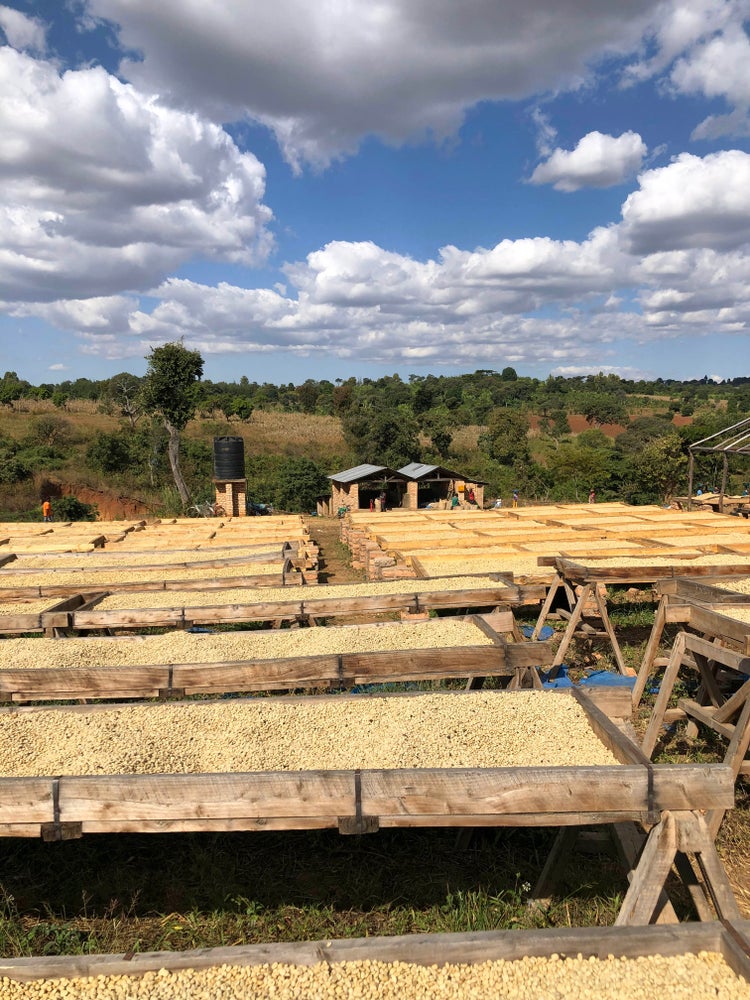About This Coffee
Sangu Pesambili Mgandilwa cultivates coffee at Mwambogolo Farm in Songwe, Tanzania. The farm’s 9.3 hectares are located at 1,750 to 1,880 meters above sea level. This coffee is sweet with stone fruit, chocolate and dried fruit.
Cultivation
Sangu grows Bourbon, Typica and Kent varieties on the farm. In addition to coffee, Sangu also cultivates corn, beans and trees.
Harvest & Post-Harvest
Coffee is selectively handpicked and processed on Mwambongo Farm. Ripe, red cherry is pulped in an ecopulper and wet fermented. Then, parchment is washed in clean water and laid on raised beds to dry covered in shade netting. Parchment is raked frequently to ensure even drying. It takes approximately 17 days for parchment to dry.
AB
Coffee in Tanzania is graded according to size. AB beans are those that are between 15 and 18 meaning that beans are between 6 and 7 millimeters in size.
Coffee in Tanzania
Coffee’s roots in Tanzania can be traced via oral history back to the Haya tribe of Northwest Tanzania in the 16th century. Following German and then British colonial rule, the Tanzanian coffee industry has undergone many transformations and adjustments in an effort to create the most equal, profitable and high-quality coffee possible. Today, our in-country partner, Sucafina Tanzania, is invested in improving the coffee and the lives of smallholder farmers through a variety of initiatives.
Coffee in Tanzania was grown almost exclusively in the North for a long time. The Kilimanjaro, Arusha, Tarime, Kagera, Kigoma and Karatu/Ngorongoro regions were prized for their ideal Arabica growing conditions. At the time, coffee production was so concentrated in the north that Moshi, a northern municipality, was the only hub for all coffee milling and sales.
Operations in Moshi grew to truly massive proportions in the 1950s and early-1960s. Since both Tanzania, Kenya and Burundi were under British rule in the post-war decades, Moshi was the second milling and sales hub (after Nairobi, Kenya) for British coffee production.
Coffee cultivation has extended southwards in recent years. In addition to the historical powerhouse regions in the north, coffee is now also grown in the southern regions of Ruvuma and Mbeya/Mbozi. Most Southern expansion of coffee growing occurred in the 1970s and 1980s and was encouraged by two projects supported by European backers. In an ironic twist, today 75 to 85% of total coffee production in Tanzania today comes from farms in the south.

